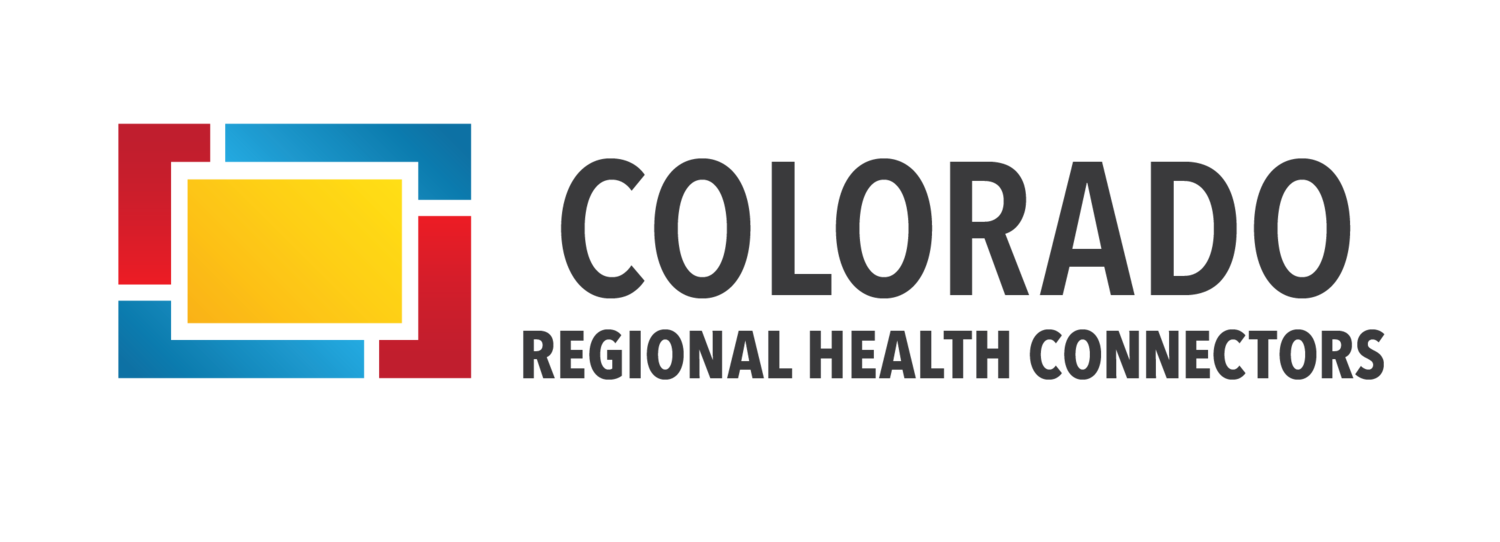
Stories of RHC Impact
Turning Our “Why” Into Action in Colorado Communities
Addressing Local Health Priorities
RHCs live in the communities they serve, providing them first-hand knowledge of local priorities and the drive to create lasting change to improve health. These featured stories of success demonstrate the powerful impact RHCs have on their communities.
Supporting Otero County’s COVID-19 Mass Vaccination Clinic
Joining the Regional Health Connector workforce in October of 2020, Christine Coffield’s early work as an RHC in Region 6 focused on COVID-19 response in Baca, Bent, Crowley, Huerfano, Kiowa, Las Animas, Otero and Prowers counties.
Taking on Transit as a Barrier to Health in San Luis Valley
Identifying access to transportation as a barrier to health in the San Luis Valley, Regional Health Connector Dee Kessler has been a steadfast advocate and partner in introducing an affordable shuttle service to the San Luis Valley since joining the program in Region 8 in 2016.
Culture as Prevention in Southwest Colorado
For her Behavioral Health Recovery Act project, Regional Health Connector Imo Succo in Region 9 is working to provide culturally relevant healing modalities to Southwest Colorado’s Native American communities through educating healthcare, social service, and behavioral healthcare providers about Native American cultural perspectives, including how historical trauma can affect mental health.
Building Bridges to Muslim Youth for Positive Impact
For her Behavioral Health Recovery Act project, Regional Health Connector Greta Macey in Region 14 has partnered with Muslim Youth for Positive Impact (MYPI) and CLINICA Family Health in Thornton, Colorado to design and implement culturally and linguistically-responsive peer supports for Afghan humanitarian parolees resettling in Adams County.
Addressing Social Isolation Among Older Adults in Jefferson County
Serving as a Regional Health Connector to Jefferson County, Cynthia Farrar’s work in Region 21 has focused on improving connections between older adults with services and programs that address social and physical isolation needs since 2019.
Expanding Peer Support and Recovery Visibility in Mesa County
In Mesa County, Regional Health Connector Jackie Sievers in Region 19 and Angie Bertrand, Executive Director of Peer 180 Recovery Community Organization, are leading a powerful collaboration to change the landscape and visibility of recovery efforts to support people with behavioral health and substance use disorder (SUD) issues.
Connection on Colorado’s Eastern Plains: Steady Movement to Address Substance Use and Stigma
In Northeast Colorado, Erika Greenberg convened conversations and led action around addressing mental health and substance use. She catalyzed connection and collaboration to build the capacity of the community to address these priorities through education and expanding awareness of resources available to “Overcome Addiction Together”.
Mental Health in the Mountains: Systems Change to Support Latino Communities
Mari Plaza-Munet has been a connector of people and systems her entire career, and her work in the Roaring Fork Valley was no exception. She amplified the experiences of the Latino community, particularly Latina mothers, to activate better services and supports for mental and behavioral healthcare in the region. You can learn more by reading her story and downloading the “Mental Health Convenings with Latina Mothers” report.
From Classrooms to Communities: Building Bridges Between Sexual Health and Youth Mental Wellness in Pueblo
In Pueblo, Hannah Kochen identified the need to better support young people’s mental health by listening to them through her sexual health work. By creating opportunities for teen voices, Hannah and her partners were able to meet young people where they are at, listen to their experiences and what support they needed, and helped to support teens in cultivating healthy relationships with themselves and others.

Measuring Impact
Regional Health Connector Behavioral Health Recovery Act Summary Report
Prepared by Trailhead Institute
Published September 2022
In 2021, the program received funding through Colorado Senate Bill 137 to improve behavioral and mental healthcare systems. Each RHC conducted a local needs assessment of their Region by analyzing national, state, and local data to identify priority gaps in behavioral and mental health services. Based on this data, the RHCs proposed projects intended to address these priority gaps and improve health equity using local knowledge, services, and assets. They are supported in these efforts by their local host organizations and community partners.
Regional Health Connector Five-Year Milestone Report
Prepared by Trailhead Institute,
Published July 2021
As the Regional Health Connector program enters its fifth year of statewide operation, this five-year milestone report reflects upon the impact that RHCs have made in communities across the state by ensuring that the right systems and clinical and community-based resources are in place to help all people living in Colorado live their healthiest lives.
Regional Health Connector COVID-19 Pandemic Response Summary
Prepared by CU Anschutz Practice Innovation
Program & Trailhead Institute
Published April 2021
Beginning in April 2020 as the impacts of COVID-19 increased across the state, the RHC evaluation team began surveying RHCs on a regular basis to understand how their work as a critical workforce in this area has been affected by and responded to the pandemic. Conducted through December 2020, the results of this survey come from the RHC workforce across the 21 Colorado Health Statistics Regions.
A Social Network Analysis of Regional Health Connectors
Prepared by Colorado Health Institute,
Published August 2019 | Updated May 2021
This report from the Colorado Health Institute (CHI) outlines findings from a social network analysis conducted to understand how partner organizations within RHC networks work with both the RHCs and one another. Two PARTNER surveys conducted in November of 2017 and November of 2018 gathered survey responses from nearly 500 organizational partners, providing insights into the complexity of networks across the state, the role played by RHCs in developing these networks, and what has changed since 2017.




